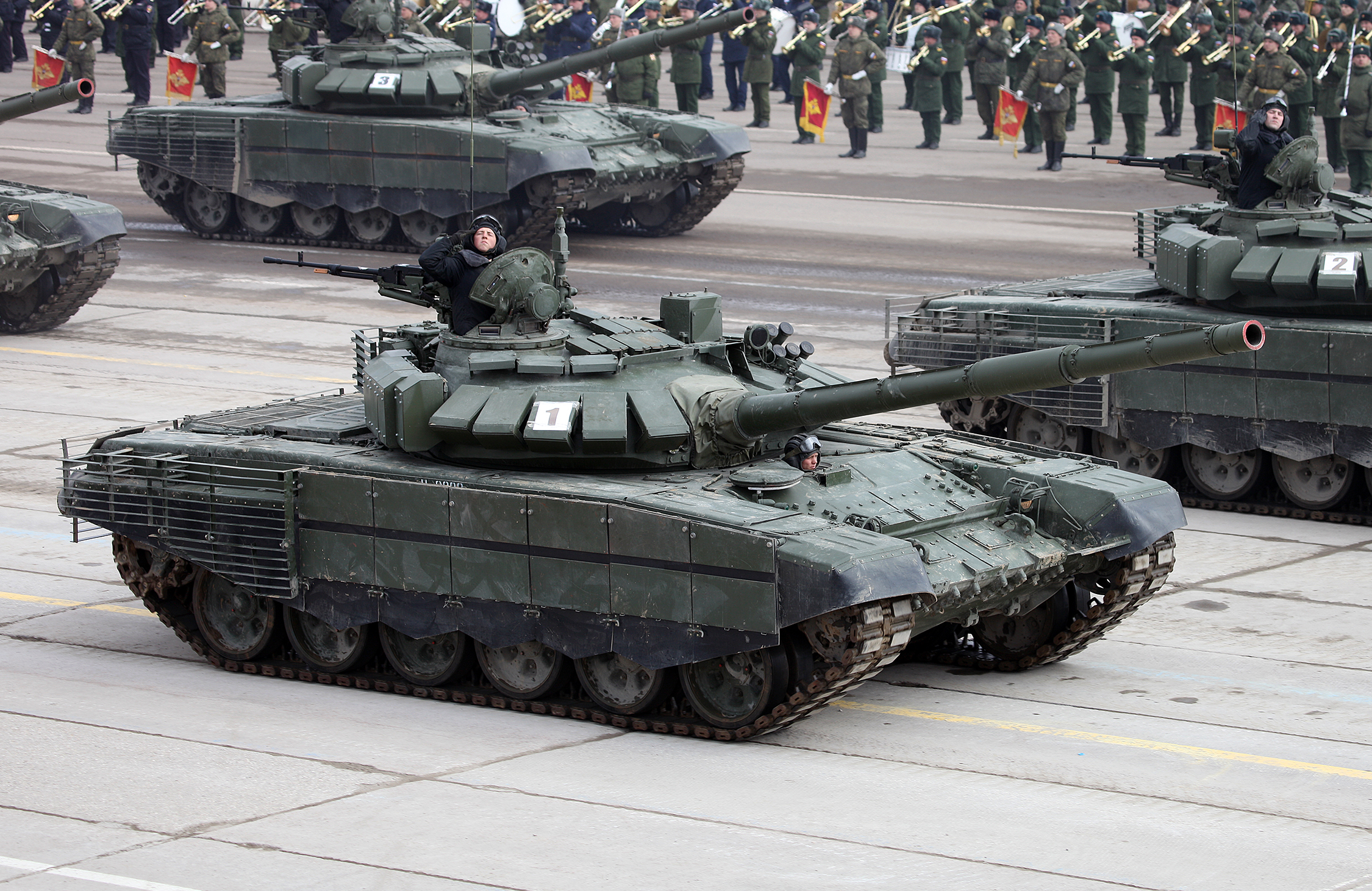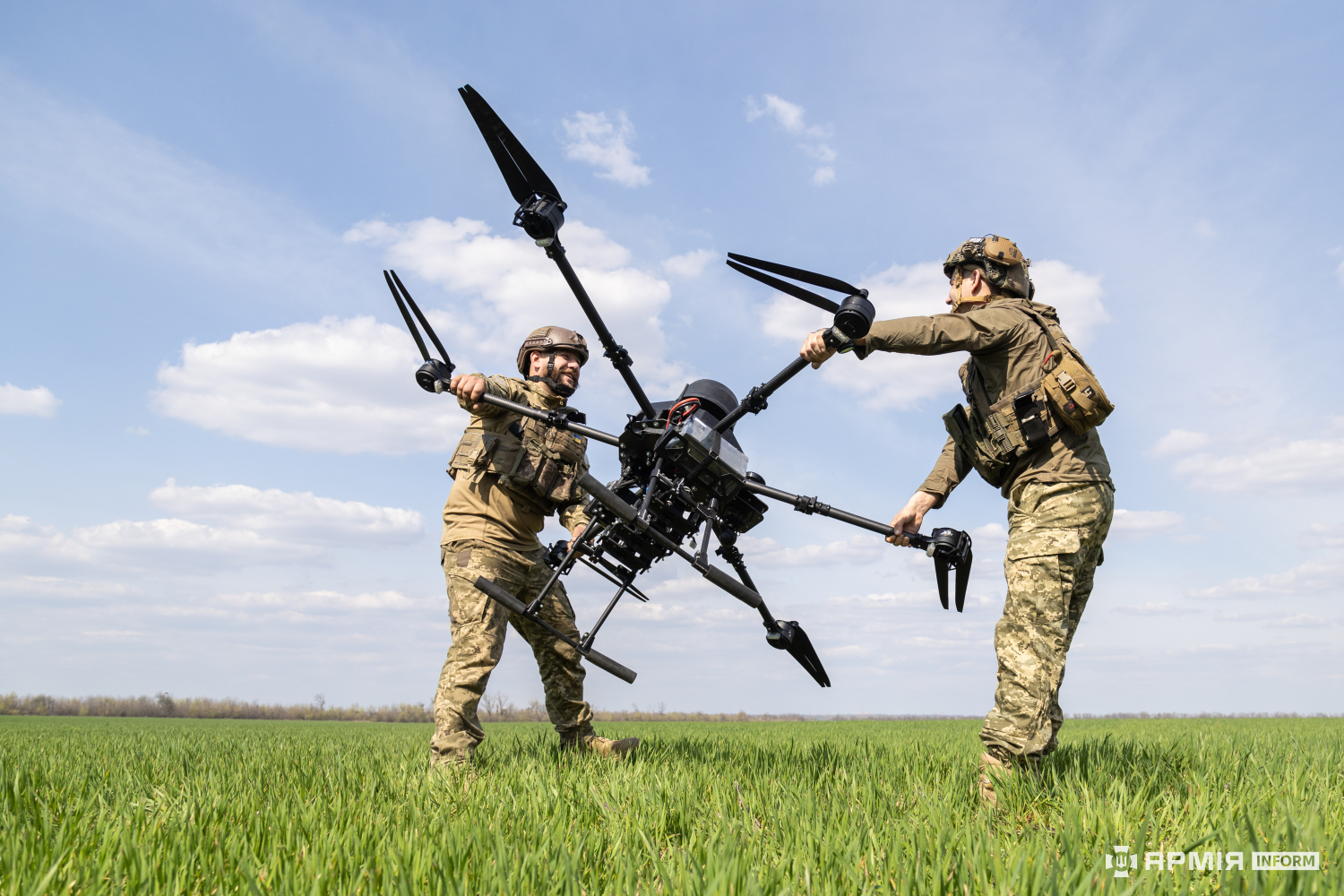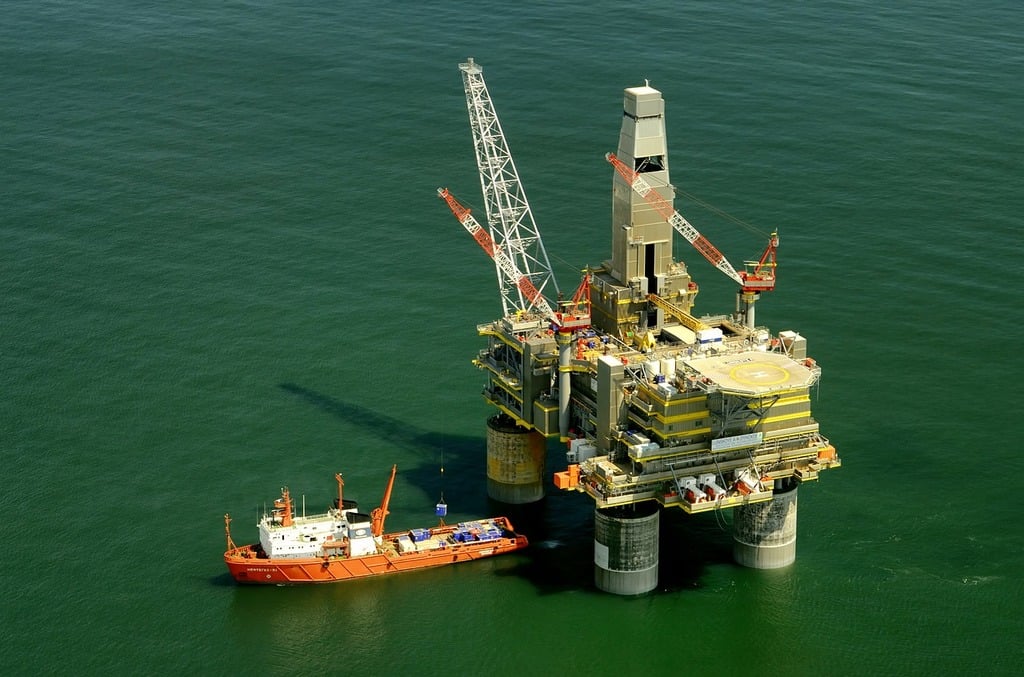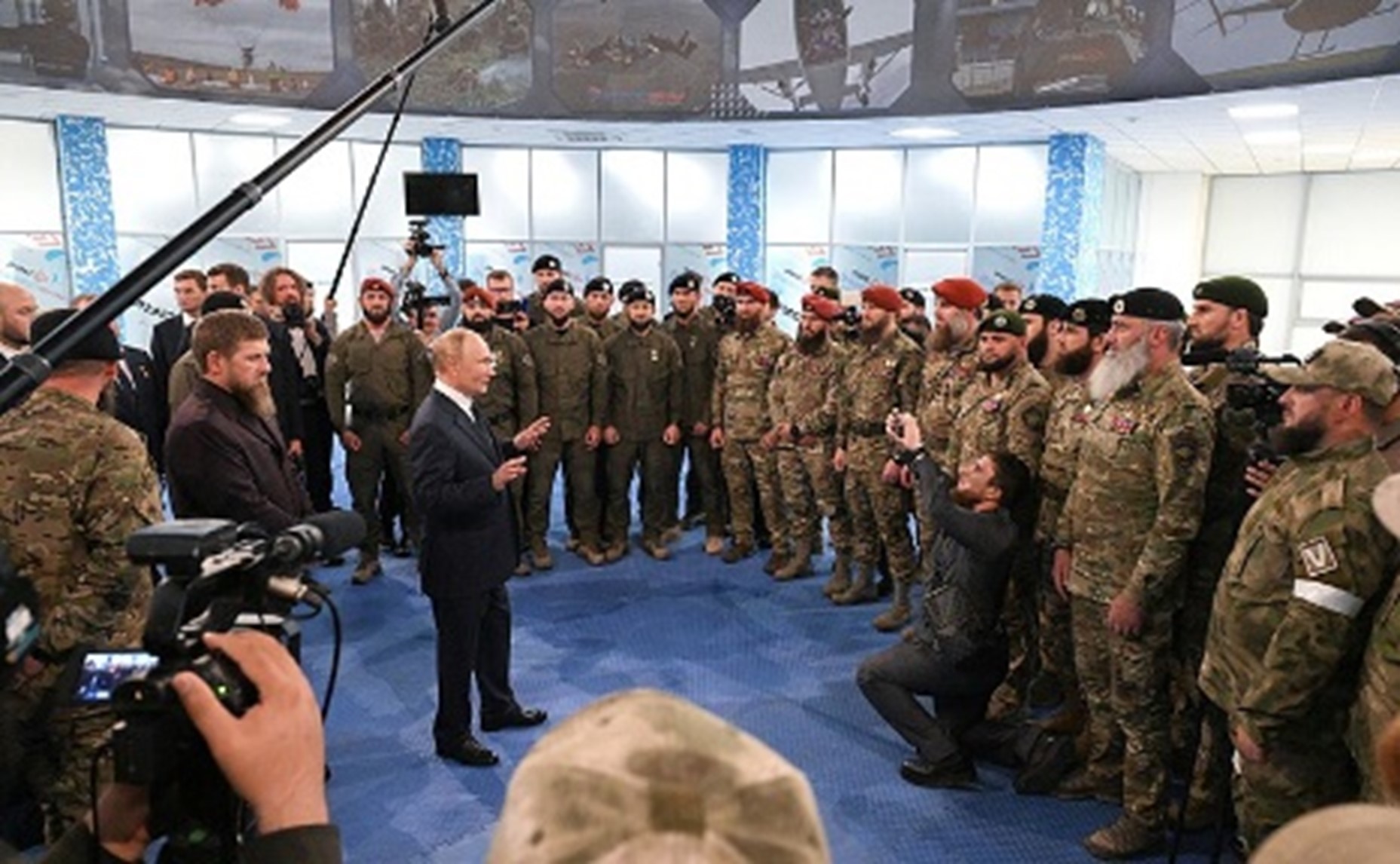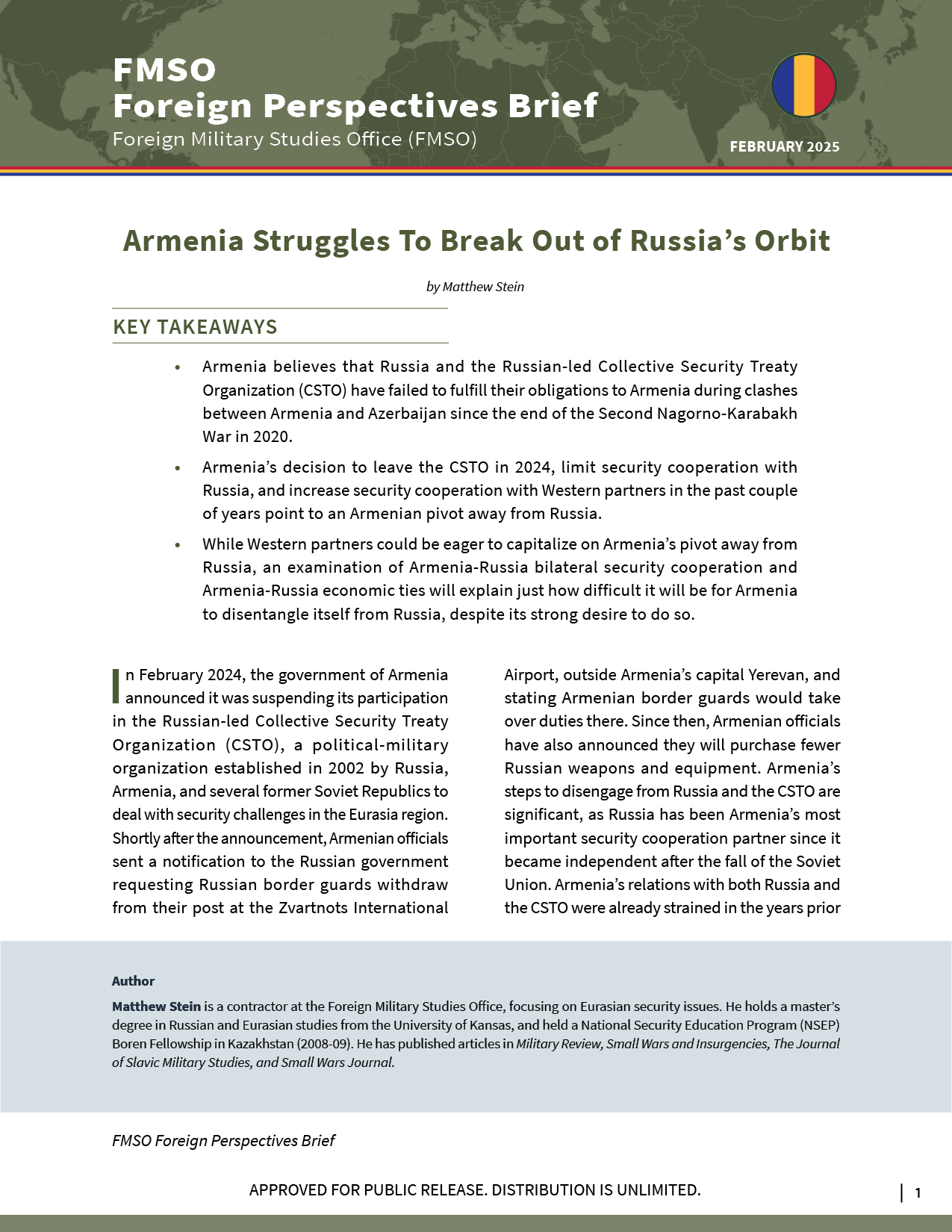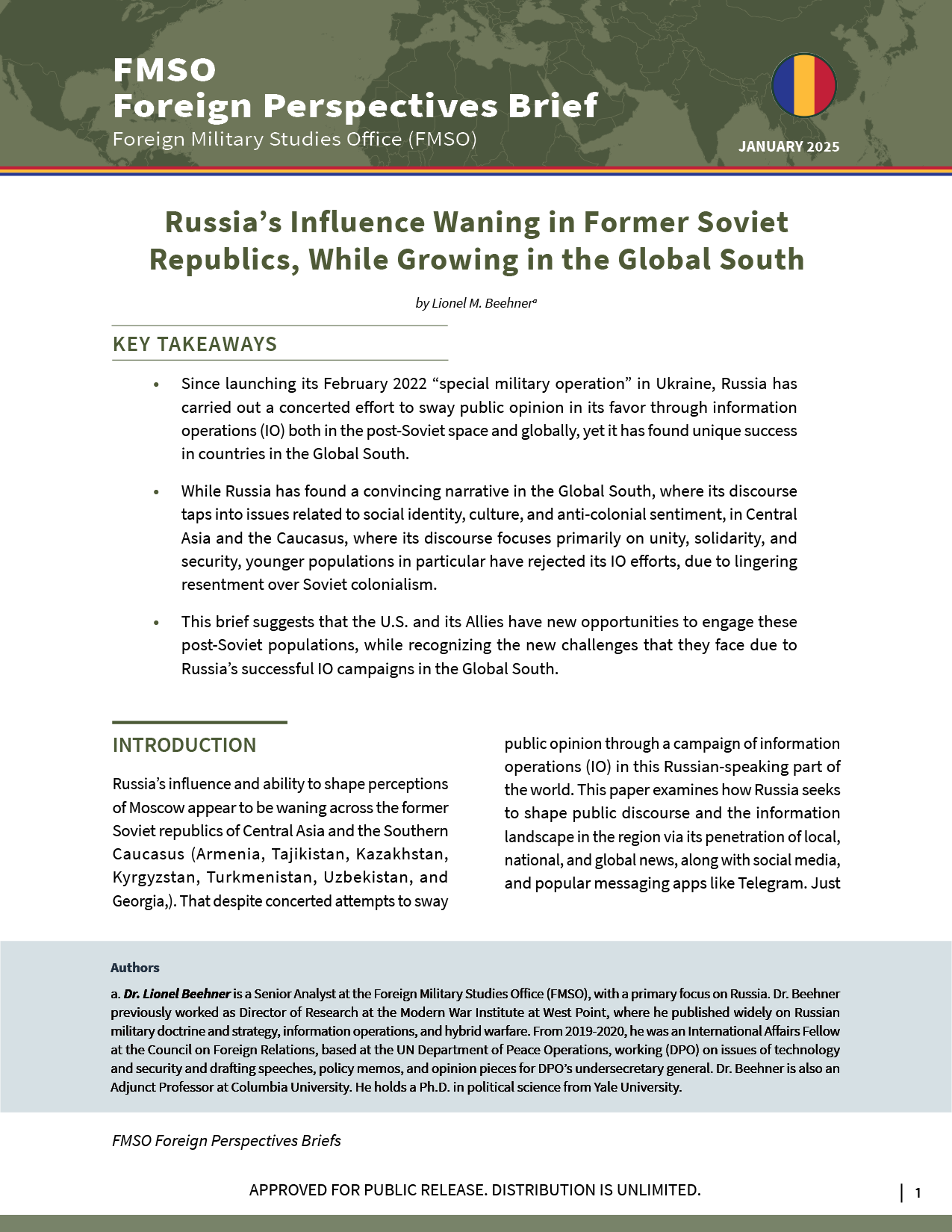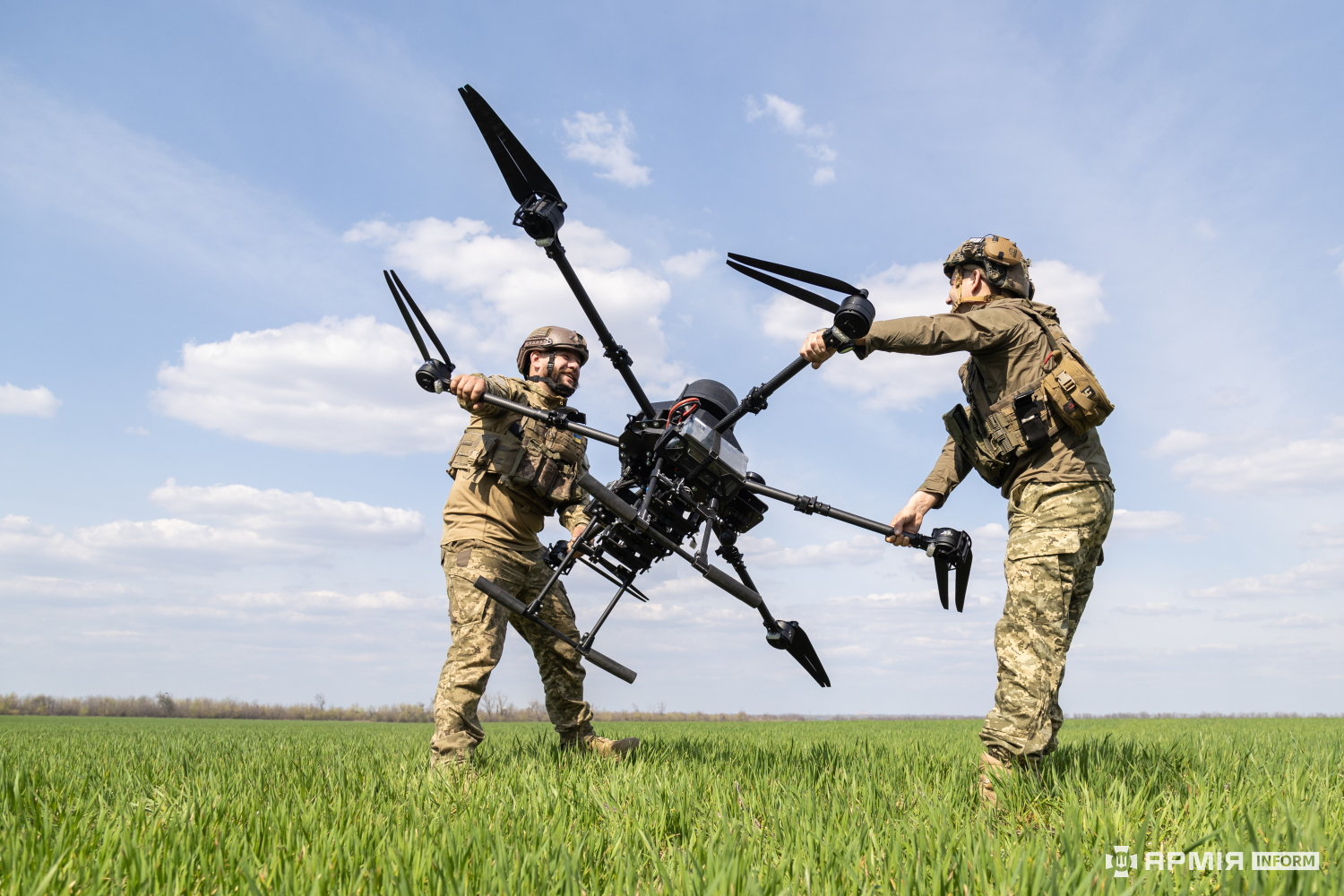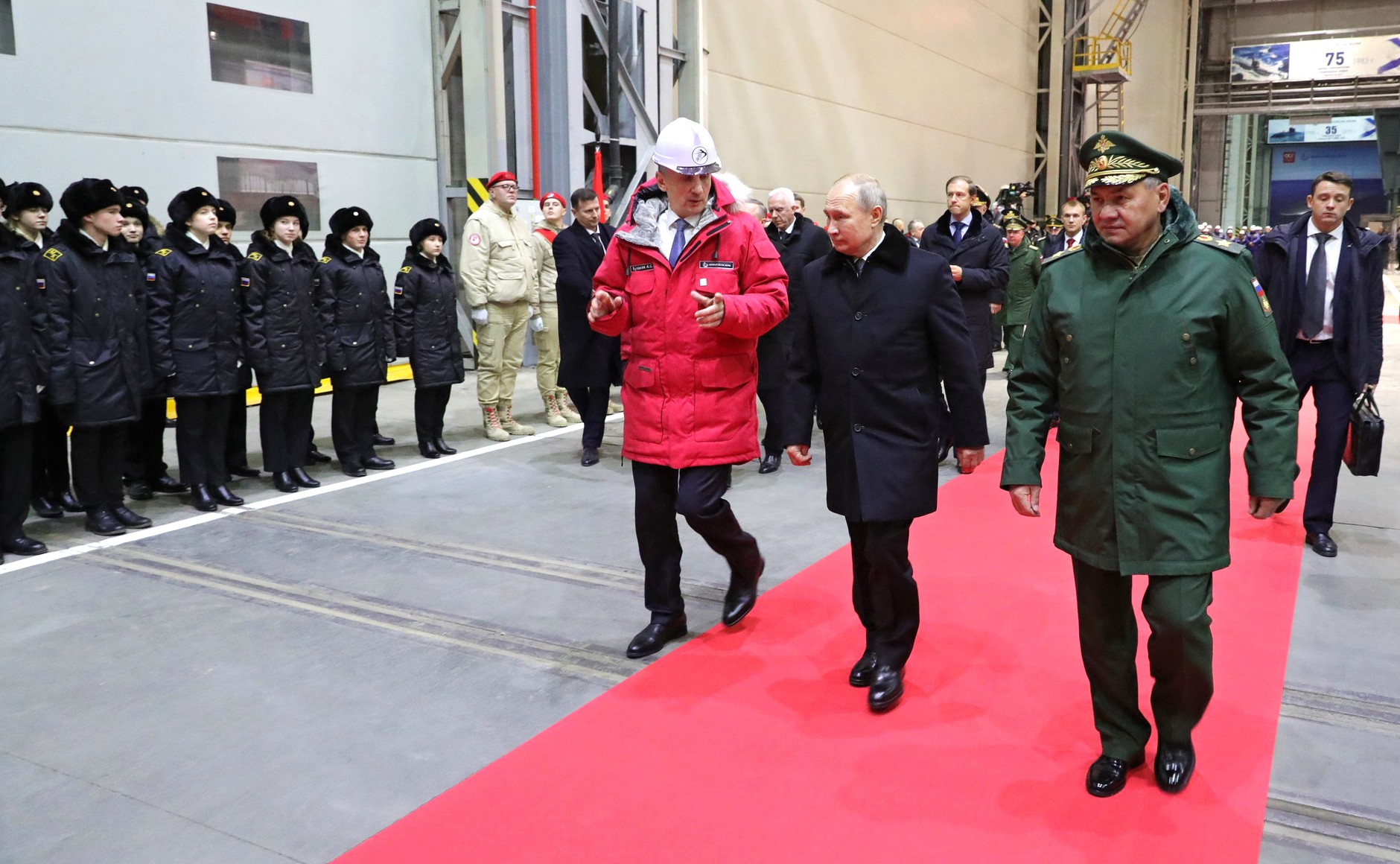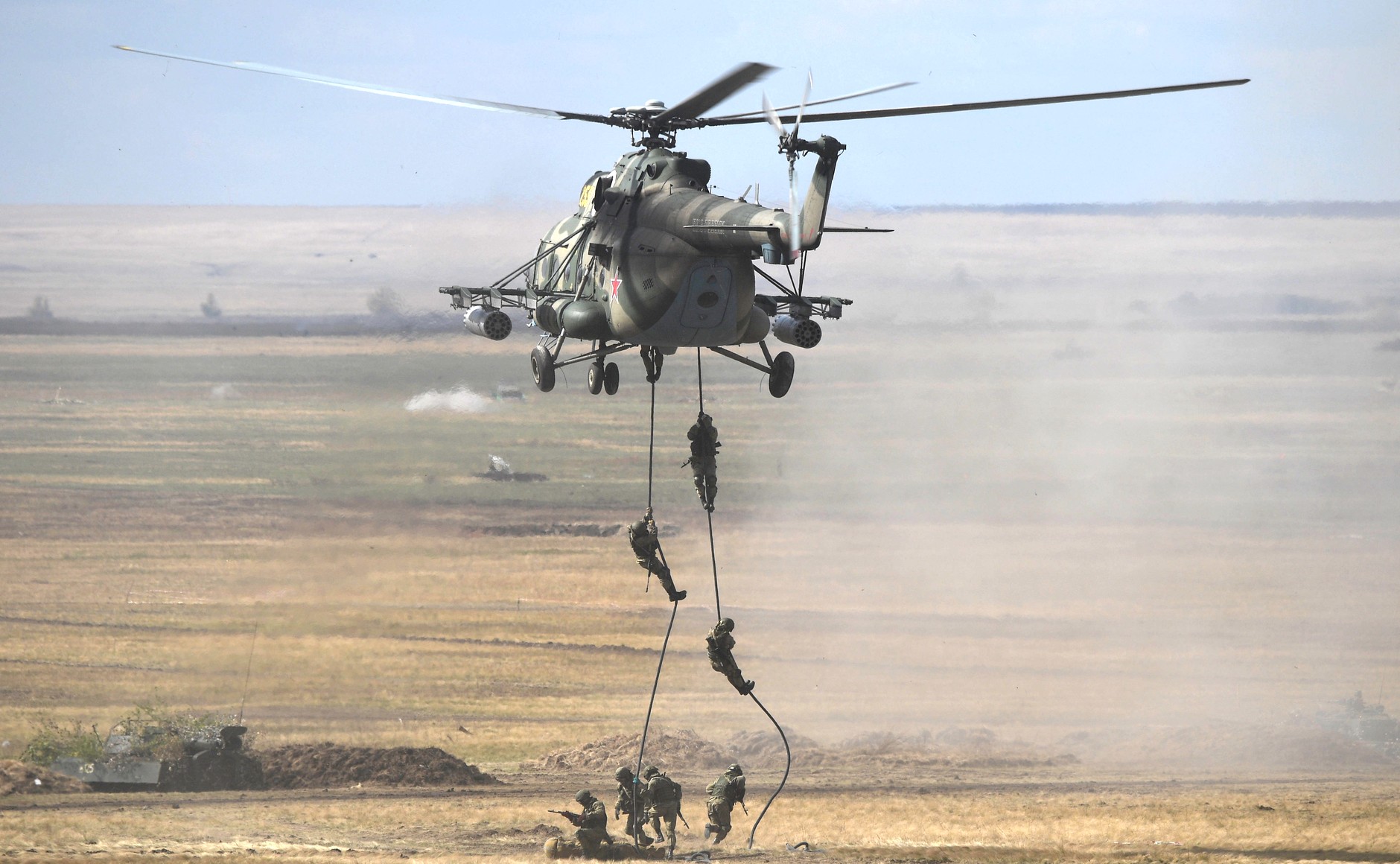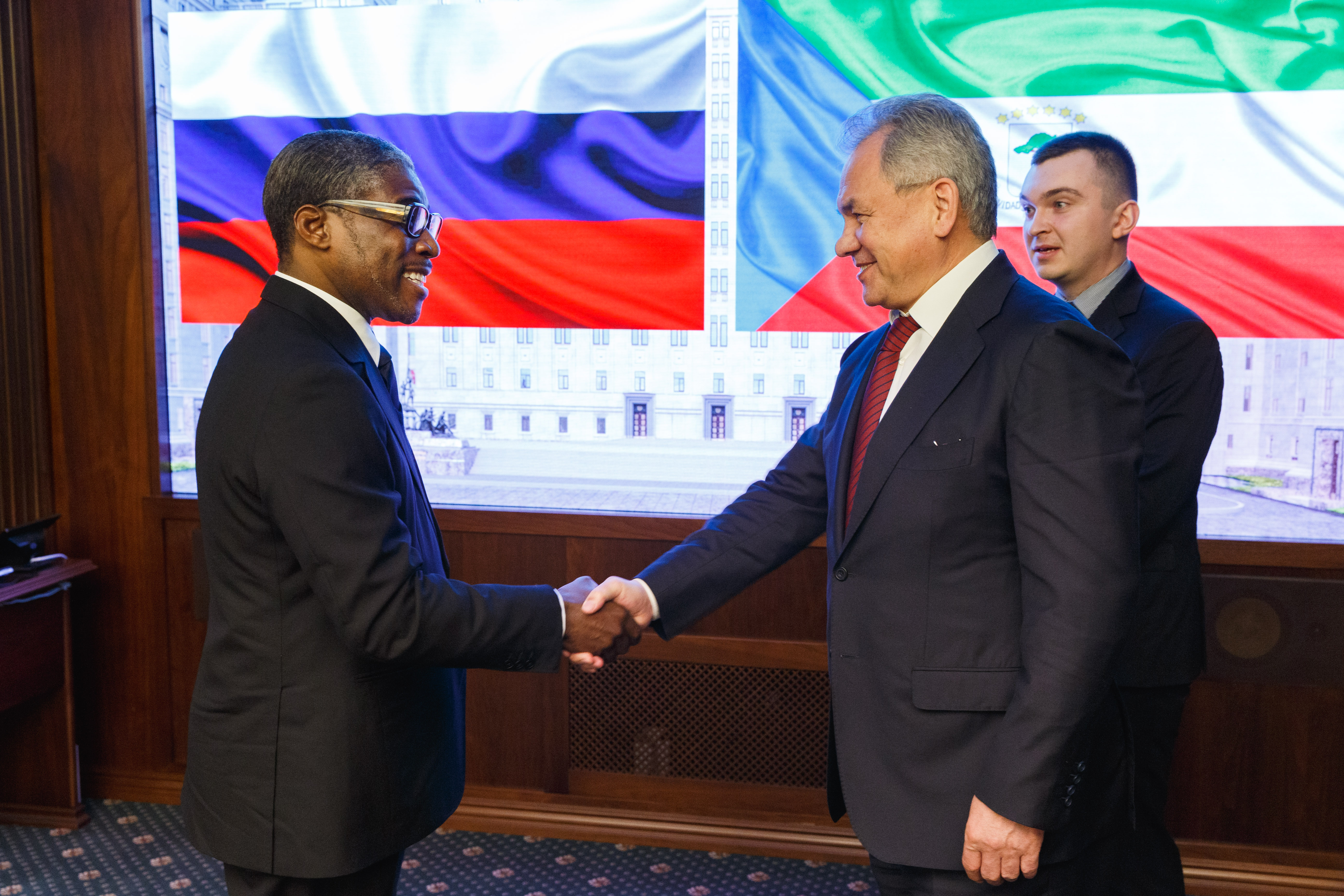
Only five years after Russia’s Ministry of Defense, which was then led by Sergei Shoigu, engaged in talks with officials from Equatorial Guinea in 2020, Africa Corps fighters have now landed in Equatorial Guinea to train the country’s armed forces.
“The parties discussed the prospects for the development of military and military-technical cooperation between the two countries, as well as security issues.”
Equatorial Guinea is now a target for Russian military influence and expansion on the African continent, according to the excerpted article from a Russian-language website covering Africa Corps and Russian security affairs, afrinz.ru. The article reports that Deputy Defense Minister and Africa Corps commander, Colonel General Yunus-Bek Yevkurov, visited Equatorial Guinea, where he met with President Teodoro Obiang and Minister of Defense Victoriano Bibanga Nsue Okomo.[i] According to the article, Yevkurov has been enhancing military cooperation between Russia and Equatorial Guinea since October 2024.
This bilateral military cooperation follows the already agreed-upon training of soldiers from Equatorial Guinea by Russian military instructors.[ii] The training is consistent with the Africa Corps’ other activities on the continent. This training is often accompanied by Russian illicit extraction of mineral resources, specialized security for authoritarian rulers, and human rights abuses during counterinsurgency operations. Equatorial Guinea, with its authoritarian government, lacks any insurgency or security crisis around its borders but possesses petroleum, natural gas, timber, gold, diamonds, and other minerals. As a result, the Africa Corps model for Equatorial Guinea will likely follow the model of support for the Equatorial Guinea leadership in return for resource extraction rights for Africa Corps.
Equatorial Guinea is the latest West Africa country where Russia is expanding its military influence and “replacing” French or Western influence through deploying Africa Corps to those countries.[iii] The article noted the burgeoning military partnership between Russia and Equatorial Guinea followed previous talks between the Russian Deputy Defense Minister Yevkurov and the leaders of Mali, Burkina Faso, Niger, and Togo. Although Togo is anomalous to these countries because it remains a parliamentary democracy, the country is under pressure from al-Qaeda–affiliated militants and was being “courted” by Yevkurov in late 2024 when he visited the capital, Lome.[iv]
Russia’s push into Equatorial Guinea comes amid Chinese attempts to court another West African country, Gabon, for a potential new—and what would be China’s first—military base in that region.[v] Russia, like China, considers the West as rivals and supports autocratic regimes in the region. Therefore, Russia’s activities in Equatorial Guinea and West Africa more generally have become one component of a broader competition for military influence in Africa between Russia and China on one end and the West on the other end.
Sources:
“Российская делегация провела переговоры с руководством Экваториальной Гвинеи (Russian delegation held talks with Equatorial Guinea leadership),” afrinz.ru, (pro-Russian Russia-language website tracking Russian military affairs, and especially Africa Corps, in Africa), 2 December 2024. https://afrinz.ru/2024/12/rossijskaya-delegacziya-provela-peregovory-s-rukovodstvom-ekvatorialnoj-gvinei/
On December 1, a Russian Defense Ministry delegation headed by Deputy Minister Colonel General Yunus-Bek Yevkurov held talks with the President of the Republic Teodoro Obiang Nguema Mbasogo and the Minister of Defense of Equatorial Guinea Victoriano Bibanga Nsue Okomo. During the meetings, the parties discussed the opportunities for the furthering of military cooperation between the two countries, as well as security issues. In addition, the participants addressed the issues of training military specialists and instructors for the Armed Forces of Equatorial Guinea.
Russia and Equatorial Guinea have been cooperating in this area since 2011, when an intergovernmental agreement on military-technical cooperation was signed and a commission on military-technical cooperation was created. Earlier, a delegation of the Russian Defense Ministry leadership held similar talks in Mali, Burkina Faso, Niger and Togo.
Notes:
[i] Russian media reported on Yevkurov taking over command of Africa corps in February 2023. See, for example: Ilya Lakstigal, “Что известно об «Африканском корпусе» России (What is known about Russia’s “Afrika Korps”). Vedimosti.ru, 22 February 2023. https://www.vedomosti.ru/politics/articles/2023/12/22/1012398-chto-izvestno-ob-afrikanskom-korpuse-rossii
[ii] See: Russia Today, “Russian instructors to train African military personnel.” 10 June 2024. https://www.rt.com/africa/599072-equatorial-guinea-russia-train-armed-forces/
[iii] Reports in Russian-language media of 200 Russian military instructors seen on the streets of Equatorial Guinea’s capital, Malabo, in September 2024, provide additional evidence of Russia’s increasing militarily involvement in Equatorial Guinea. See: Gregory, Sissoev, “Что известно об отношениях России и Экваториальной Гвинеи (What is known about relations between Russia and Equatorial Guinea),” TASS (Russian state news service), 26 September 2024. https://tass.ru/info/21961363
[iv] See: BBC Monitoring, “Briefing: Russia’s Africa Corps chief discusses military cooperation with Togo.” 1 December 2024. https://monitoring.bbc.co.uk/product/b0002vxf
[v] See: Jacob Zenn, “China’s Initiates Push To Establish a Military Base in Gabon,” OE Watch, 06-2024. https://fmso.tradoc.army.mil/2024/chinas-initiates-push-to-establish-a-military-base-in-gabon/
Image Information:
Image: Only five years after Russia’s Ministry of Defense, which was then led by Sergei Shoigu, engaged in talks with officials from Equatorial Guinea in 2020, Africa Corps fighters have now landed in Equatorial Guinea to train the country’s armed forces.
Source: Mil.ru, https://commons.wikimedia.org/wiki/File:Russia-Equatorial_Guinea_military_talk_2020.jpg
Attribution: CC x 4.0

